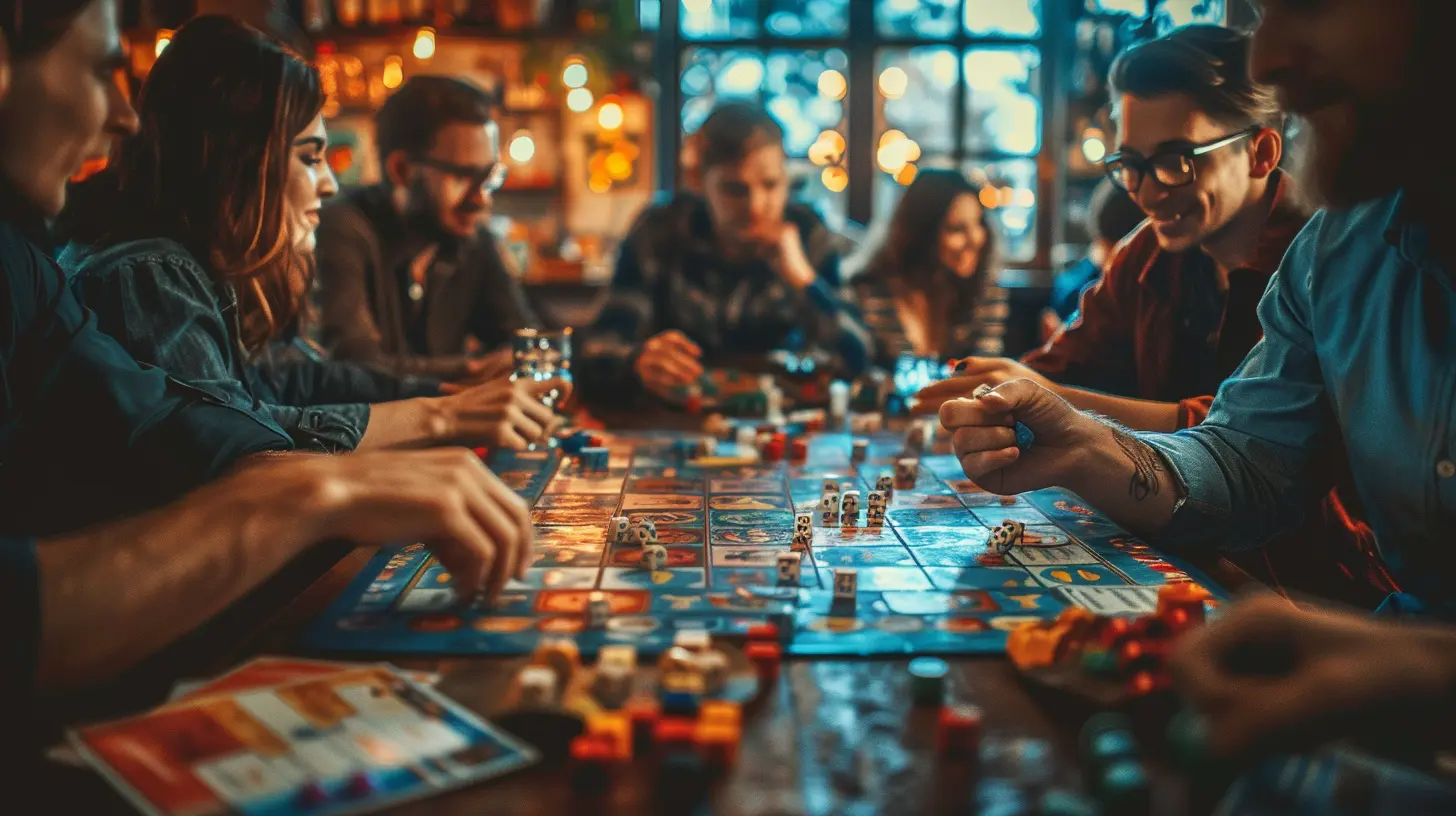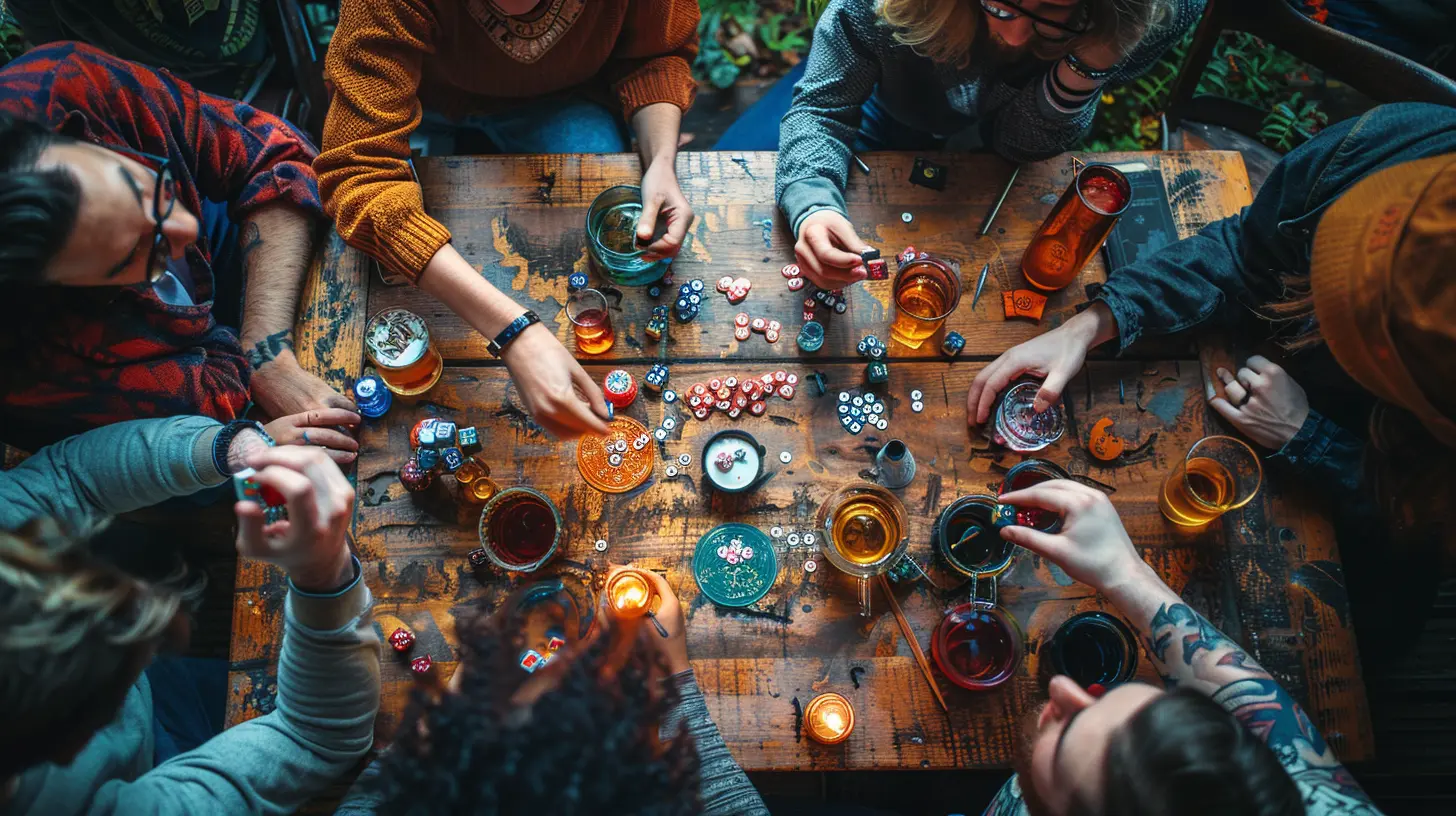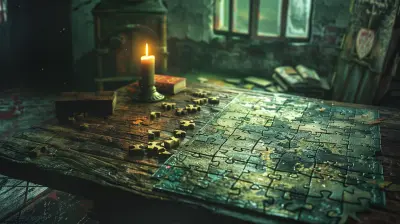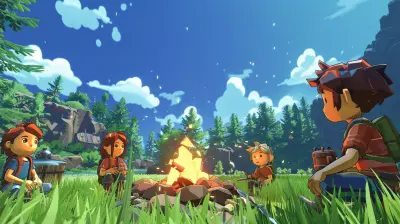21 January 2025
Gaming has come a long way from the pixelated adventures of the past. These days, video games are more than just entertainment—they’re tools for connection, collaboration, and even personal growth. While single-player games often steal the spotlight, let’s talk about something that’s just as exciting: cooperative games.
Co-op games bring people together like a perfectly executed high-five. They encourage teamwork, communication, and shared problem-solving. But here’s the kicker—these games can do more than pass the time. They can actually strengthen relationships, whether it’s between friends, family members, or romantic partners. So, let’s dig into how cooperative games break down barriers and create connections that run deeper than leveling up a character.
What Are Cooperative Games?
Alright, before we jump into the nitty-gritty, let’s make sure we’re on the same page. Cooperative games, or “co-op games,” are games where players join forces toward a common goal. Unlike competitive games where it’s every person for themselves, cooperative games encourage players to rely on each other. It’s about collaboration, not domination.Think of it like being on a rowing team. If one person slacks off, the entire boat slows down. Everyone needs to do their part, communicate, and trust each other. That’s the essence of co-op gaming—a shared experience where winning (or losing) happens together. 
Why Cooperative Games Are Relationship Gold
Let’s talk about why cooperative games are basically relationship glue. Spoiler alert: It’s not just about the fun (although that’s a big part of it).1. They Encourage Communication
You ever try playing a co-op game without talking? Yeah, good luck with that. Whether it’s strategizing the next move in Overcooked or shouting directions in Keep Talking and Nobody Explodes, communication is key.Co-op games don’t just demand you talk—they teach you how to talk. You’ll learn to give clear instructions, listen actively, and make decisions as a team. And guess what? Those are handy skills for real-life relationships too, whether you’re figuring out what’s for dinner or working through an argument.
2. They Build Trust
Trust is the foundation of any relationship, right? And if a co-op game isn’t the ultimate trust exercise, I don’t know what is. Imagine relying on your partner to heal you in a life-or-death moment during a dungeon raid. Or trusting your friend to cover your back in a zombie apocalypse.Every successful co-op game session reinforces the idea that you’ve got each other’s back, which can spill over into real life. The next time you’re tackling something challenging—like hosting a family dinner or planning a vacation—that trust you built in the gaming world can make a difference.
3. They Foster Empathy
One of the most underrated aspects of cooperative games is how they put you in someone else’s shoes. Whether it’s a game mechanic that forces players to switch roles or moments where you need to cover for each other, co-op games nurture empathy.Take A Way Out, for instance. This game requires two players to control escaped convicts working together to survive. The narrative and gameplay force you to consider the other person’s perspective. That’s empathy in action. 
Real-Life Scenarios Where Co-op Games Shine
Still think games are just for kids? Let’s break it down into real-life scenarios where cooperative games can improve relationships—and I promise you’ll see these games in a whole new light.1. Strengthening Romantic Relationships
Have you and your partner ever argued over who left the dishes in the sink? Believe it or not, cooperative games can help with those small, everyday conflicts. Games like It Takes Two and Portal 2 require intense collaboration and problem-solving. They teach you to communicate effectively and work as a team, which is pretty handy in real life.Plus, let’s not forget the shared laughs. Messing up a mission together is a lot less stressful than fighting over whose turn it is to clean the bathroom.
2. Bringing Families Closer
Families that game together, stay together—okay, maybe not always, but you get the idea. Co-op games are a great way to bridge generational gaps.Think about family gatherings where everyone’s glued to their phones. Instead, picture everyone playing a round of Overcooked or Mario Party. Not only does this foster teamwork, but it also gives everyone something to bond over, from grandma to the youngest in the family.
3. Strengthening Friendships
Ever drifted apart from a close friend because life got in the way? Cooperative gaming can bring you back together. There’s something inherently special about teaming up to survive the wilderness in Don’t Starve Together or taking down a boss in Monster Hunter: World.Games give you a shared goal, which makes conversations flow naturally. You’ll find yourself laughing, strategizing, and reconnecting in ways you didn’t expect. 
Breaking Down Emotional Barriers
Let’s get a little deeper here. Games don’t just foster teamwork—they often create emotional safe spaces.Think about it: In a co-op game, you’re working toward a common goal. There’s no room for judgment or blame. It’s just two (or more) people tackling a challenge together. That dynamic can make it easier to let your guard down.
For people who struggle with expressing their emotions, cooperative games can be a lifeline. They let you connect with others without needing to say much. You could be battling orcs in a fantasy world, but beneath the surface, you’re building real, meaningful connections.
How Co-op Games Improve Mental Health
Let’s not ignore the mental health benefits here. Cooperative games can actually help reduce stress and anxiety. How? By promoting social interaction and giving players a sense of accomplishment.When you’re focused on defeating an enemy or solving a puzzle with your best friend, guess what you’re not doing? Worrying about that awkward thing you said two days ago. Gaming pulls you into the moment, gives you a break from stress, and reminds you that you’re capable of tackling challenges—both virtual and real.
Not All Co-op Games Are Created Equal
Before you rush off to jump into a cooperative game, let’s set some expectations. Not every co-op game is a relationship-builder. A poorly designed game can lead to frustration and finger-pointing (I’m looking at you, Mario Kart Double Dash).So, what makes a good co-op game for strengthening relationships? Look for games that:
- Require communication and strategy.
- Have a forgiving difficulty curve.
- Offer opportunities for both players to contribute equally.
- Are lighthearted and fun, so you’re not taking things too seriously.
Some standout co-op games to try:
- Overcooked
- It Takes Two
- Stardew Valley (multiplayer mode)
- Lovers in a Dangerous Spacetime
- Minecraft
Final Thoughts: A New Way To Connect
At the end of the day, cooperative games are more than just a way to pass the time—they’re a way to connect. They force us to listen, trust, and empathize, all while keeping things light and fun. And in a world where meaningful connections can sometimes feel rare, that’s a pretty big deal.So, the next time you’re looking for a way to strengthen a relationship, skip the awkward small talk and pick up a controller. You might just find that gaming is the ultimate icebreaker—and relationship builder.









Zethryn Ward
Cooperative games foster teamwork, enhance communication, and strengthen bonds among players effectively.
April 5, 2025 at 2:51 PM